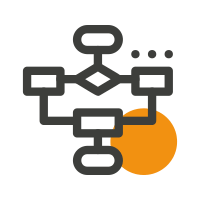Paid Search Marketing Agency Solutions for Your Business
Navigate the Digital Advertising Maze with Ease and Efficiency
Boost Your Business Growth with Our Paid Search Marketing Agency
Navigating the world of online advertising can be daunting. At Search Traffic Success, we simplify it for you. As a leading Paid Search Marketing Agency in Australia, we specialise in creating strategic, targeted ad campaigns that drive traffic and increase conversion rates. Our experts understand your business needs and tailor solutions to meet them. We don’t just aim for clicks; we target quality leads that translate into real business growth. With us, you gain a partner dedicated to helping you reach your business goals through effective paid search marketing.

Tailored SEO Strategies
We craft personalised strategies, understanding your unique needs, market dynamics, and growth goals.

Data-Driven Approach for Results
We utilise data-driven techniques to maximise campaign effectiveness and drive meaningful traffic.
Search Traffic Success
Our tailored services
We create customised ad campaigns that align with your business objectives, driving quality traffic and conversions.
Our experts conduct thorough market analysis to understand your competition and target audience for strategic ad placement.
We focus on not just generating traffic but converting it into leads and sales, enhancing your return on investment.
We provide continuous campaign monitoring to assess performance, make necessary adjustments, and ensure optimal results.
Our team of SEO and Google Ads specialists are always available for consultation, offering professional advice to help grow your business.
our approach
Key Metrics For Measuring Marketing Success
At Search Traffic Success, our approach as a Paid Search Marketing Agency is rooted in quantifiable data. We believe that the true measure of marketing success lies in key metrics such as traffic quality, conversion rates, and return on investment. Our team diligently tracks these parameters to assess the effectiveness of your ad campaigns, providing you with clear insights into your business’ online growth and success.
Customer Acquisition Costs (CAC)
30% is the average reduction we see in CAC (in 3 months) from the day we manage it. Reduce your customer acquisition cost with our expert management of Google Ads and Shopping campaigns.
Average Order Value (AOV)
28% is the average increase in AOV we achieve in a 12 month span. Boost your average order value with data-driven insights, including order bumps, bundling, and upselling, expertly identified by our team.
Customer Lifetime Value (CLV)
We grew customer lifetime value, on average across all industries we have grown CLV by over 55% in an 12 month period. Increase your CLV with referral programs, personalised campaigns, and full funnel content marketing.
Conversion Rate
68% is the average increase in conversion rate on all Google Shopping campaigns we manage (within a 12 month period), through a suite of optimisation activities like revamping abandon cart sequences or improving product landing pages.
Let our Paid Search Marketing Agency scale your business
Why Choose Search Traffic Success
- Customised Approach: We don’t believe in ‘one-size-fits-all’. At Search Traffic Success, each client’s campaign is meticulously tailored to meet their specific business goals and target audience.
- Data-Driven Decisions: Our decisions are based on data, not guesswork. We utilise a variety of key metrics to guide our strategies, ensuring maximum ROI for your paid search marketing campaigns.
- Conversion Focus: Traffic is pointless without conversions. Our team concentrates on turning visitors into customers, amplifying your sales and business growth.
- Experienced Team: Our Paid Search Marketing Agency boasts a team of seasoned SEO and Google Ads specialists committed to your success. Their expertise can make a difference in your campaign’s outcomes.
- Ongoing Support: We don’t just set up your campaign and leave it. We offer continuous support, monitoring your campaign’s performance and making necessary adjustments for optimal results.

Increasing Online Visibility
Boost your online visibility with our Paid Search Marketing Agency, ensuring your business stands out in the crowded digital landscape.

Attracting More Customers
Attract more customers effectively as we optimize your ads to reach those who are genuinely interested in your products or services.

Precise Targeting and Cost-Effective Advertising
Experience precise targeting and cost-effective advertising through PPC, allowing your ads to reach the right people at the right time without breaking the bank.

Measurable Growth and Return on Investment
Enjoy measurable growth and a solid return on investment with our comprehensive analytics, proving the value of every dollar spent.
Choosing a Google Ads Agency can provide a significant boost to your business. Here’s why:
Expertise: Agencies specialise in the field of paid search marketing, possessing an in-depth understanding of the strategies and tools needed to make your campaign successful. They stay up-to-date with the latest trends, algorithm changes, and industry best practices, which can be difficult to keep track of if you’re managing your own business.
Time-saving: Managing a successful paid search campaign requires time and effort. By outsourcing this task to an agency, you can focus more on running your business while the agency takes care of maximizing your online presence.
Cost-effective: While hiring an agency involves cost, it could save you money in the long run. Agencies have the knowledge to optimize your ad spend, ensuring you get the most out of your budget. They can prevent costly mistakes that can occur when managing campaigns without experience.
Access to advanced tools: Agencies have access to premium tools and software that may be too expensive for individual businesses to invest in. These tools can provide valuable insights and data to make your campaigns more effective.
Consistent monitoring and optimization: Paid search marketing requires regular monitoring and tweaking to ensure optimal performance. An agency will constantly monitor your campaigns, making necessary adjustments to increase effectiveness and ROI.
Reporting and transparency: A reputable agency will provide regular reports detailing the performance of your campaigns. This transparency allows you to understand where your marketing budget is going and what results it’s yielding.
Remember, the success of your paid search marketing efforts can directly impact the growth and profitability of your business. Therefore, investing in a professional agency can be a wise decision.
Choosing our PPC Agency over others comes with several unique advantages that can significantly benefit your business.
Tailored Strategies: We don’t believe in a one-size-fits-all approach. We take the time to understand your business, goals, and target audience to create customized strategies that align with your unique needs.
Experienced Team: Our team comprises seasoned professionals with years of experience in paid search marketing. They have the skills and knowledge to manage complex campaigns and deliver results.
Data-Driven Decisions: We rely on data, not guesswork, to make decisions. We use advanced analytics tools to track performance and make necessary adjustments to your campaigns. This approach ensures every decision is backed by data, increasing the likelihood of success.
Transparent Reporting: We believe in maintaining complete transparency with our clients. We provide detailed reports that break down the performance of your campaigns, so you know exactly where your money is going.
Proven Track Record: We have a proven track record of delivering results for our clients. We’ve helped businesses of all sizes increase their online visibility, attract more customers, and grow their revenue.
Excellent Customer Service: We value our clients and strive to provide excellent customer service. We’re always available to answer questions, provide updates, or discuss your campaigns.
In conclusion, choosing our agency means choosing a partner committed to your success. We go above and beyond to ensure your paid search marketing efforts yield the best possible results.
Paid Search Marketing, also known as Pay-Per-Click (PPC) advertising, is a form of online marketing where advertisers pay a fee each time their ad is clicked by a user. It’s essentially a way to buy visits to your site, rather than attempting to “earn” those visits organically.
Here’s a simplified explanation of how it works:
Keyword Selection: The process begins with keyword research. Advertisers identify the keywords that potential customers might use when searching for their products or services on search engines.
Ad Creation: Advertisers create ads related to these keywords. These ads can appear on search engine results pages (SERPs) and other websites participating in the search engine’s network.
Bidding: Advertisers bid on the chosen keywords. The bid represents the amount the advertiser is willing to pay each time a user clicks on their ad.
Ad Display: When users perform a search using those keywords, the search engine’s algorithm assesses all bids and displays the ads of the highest bidders.
Clicks and Conversions: Users who find the ad relevant may click on it, leading them to the advertiser’s website. The ultimate goal is to convert these users into customers.
Remember, the success of paid search marketing relies heavily on the relevance and quality of your ads and the landing page they lead to. A well-managed campaign can drive high-quality traffic to your website, leading to increased sales and business growth.
Almost any type of business can benefit from Google Ads. Whether you’re a small local shop or a large multinational corporation, paid search offers opportunities to increase your online visibility and attract more customers. Here are a few examples:
E-commerce Businesses: For online retailers, PPC can be a powerful tool to drive potential consumers to their site. By targeting keywords related to their products, they can attract users who are ready to purchase.
Local Businesses: Local businesses like restaurants, salons, or repair services can use geo-targeting features in paid search to display their ads to people in their area, helping them attract local customers.
B2B Companies: B2B companies can target industry-specific keywords to reach potential clients. This strategy can help generate high-quality leads that are more likely to convert into clients.
Service Providers: Service providers such as lawyers, doctors, or consultants can use paid search to showcase their services to individuals seeking their expertise.
Non-profits: Non-profit organizations can use paid search to raise awareness about their cause and attract potential donors or volunteers.
Remember, the key to successful Paid Search Marketing lies in understanding your target audience, choosing the right keywords, and creating compelling ads that encourage users to click. With the right strategy, virtually any business can leverage paid search to reach its goals.
PPC advertising is a crucial component of digital marketing for several reasons:
Reach: With billions of searches conducted every day on search engines, PPC advertising allows your business to reach a vast audience actively looking for your products or services (source: Google Ads).
Targeting: PPC allows you to target specific keywords, demographics, and locations, ensuring your ads are shown to the most relevant audience. This precise targeting can lead to higher conversion rates.
Speed: Unlike organic search strategies, which can take months to yield results, PPC campaigns can be set up quickly and start driving traffic to your site almost immediately.
Measurable Results: Every aspect of PPC advertising is measurable, from the number of clicks and impressions to conversions and ROI. This data-driven approach allows businesses to optimise their campaigns for better results.
Cost-Effective: Despite the name, PPC can be a cost-effective marketing strategy. Since you only pay when someone clicks your ad, you’re essentially paying for potential leads or customers, not just views.
Flexibility: PPC campaigns offer flexibility. They can be paused, adjusted, or stopped at any time based on their performance, ensuring your marketing budget is used effectively.
In conclusion, PPC advertising is an essential tool in any digital marketing toolkit, offering businesses the opportunity to reach, engage, and convert their target audience effectively.
Tracking performance is a critical aspect of running a successful PPC campaign. Here are some common methods and metrics used:
Click-Through Rate (CTR): CTR measures the percentage of people who click on your ad after seeing it. It’s a good indicator of how relevant and appealing your ad is to the audience.
Conversion Rate: This is the percentage of users who take a desired action after clicking on your ad, like making a purchase, signing up for a newsletter, or filling out a form. A high conversion rate often indicates that your ad and landing page are effective and relevant to the users.
Cost per Conversion: This measures how much you’re spending for each conversion. It’s important for understanding if the returns from the conversions justify the cost of the ads.
Quality Score: Google Ads provides a quality score for each of your keywords, based on the relevance of your ads, keywords, and landing page. A higher quality score can result in lower costs and better ad positions.
Impressions: This is the number of times your ad is shown. While not a direct measure of success, it can give you an idea of your ad’s reach.
Return on Ad Spend (ROAS): This calculates the revenue generated for every dollar spent on advertising. It’s a useful metric for measuring the effectiveness of your campaign in monetary terms.
Most PPC platforms provide tools for tracking these metrics. Google Ads, for instance, has a comprehensive dashboard where you can monitor the performance of your campaigns. Additionally, integrating your PPC platform with a web analytics tool like Google Analytics can provide deeper insights into user behavior after they click on your ads.
Optimising PPC campaigns is crucial to achieving the best possible results. Here are some strategies that can help improve the performance of your PPC campaigns:
Keyword Research: Regularly update and refine your keyword list. This includes adding relevant terms that you might be missing and removing ones that aren’t performing well.
Ad Copy: Your ad copy should be compelling and relevant to the keywords you’re targeting. Test different variations of your ad copy to see what resonates best with your audience.
Landing Pages: Ensure your landing pages are relevant to your ads and offer a seamless user experience. The content should match the promise made in the ad to increase conversions.
Bidding Strategy: Monitor and adjust your bidding strategy based on the performance of your ads. For example, you might want to bid more on keywords that are generating a high ROI.
Negative Keywords: Use negative keywords to exclude search terms that are not relevant to your business or are unlikely to lead to conversions.
Ad Extensions: Utilise ad extensions, like call buttons or location information, to provide additional information and make your ads more engaging.
Device Targeting: If your audience behaves differently on different devices, consider setting up device-specific campaigns.
Schedule: Adjust your ad schedule to ensure your ads are running at times when they’re likely to perform best.
Remember, optimisation is an ongoing process. Regularly reviewing and tweaking your campaigns based on performance data can help you maximise the return on your PPC investment.
Even though PPC advertising can be highly beneficial for businesses, certain mistakes can undermine the success of your campaigns. Here are some common pitfalls to avoid:
Ignoring the Relevance of Landing Pages: Your landing pages should align with your ad copy and keywords. If users don’t find what they’re expecting when they click on your ad, they’re likely to leave without converting.
Not Using Negative Keywords: Negative keywords prevent your ads from showing for irrelevant search queries. Not using them can lead to wasted spend on clicks that are unlikely to convert.
Setting and Forgetting: PPC advertising requires regular monitoring and optimization. Simply setting up a campaign and then ignoring it can result in poor performance and wasted budget.
Overlooking Mobile Users: With the increasing use of mobile devices for online searches, it’s important to ensure your ads and landing pages are optimized for mobile users.
Bidding on Broad Keywords: Broad keywords can attract a lot of traffic, but they’re often less targeted and more competitive. Focusing on long-tail keywords can often yield better results.
Lack of A/B Testing: Without testing different versions of your ads and landing pages, you won’t know what works best for your audience. Regular A/B testing should be a key part of your PPC strategy.
Not Tracking Conversions: If you’re not tracking conversions, you won’t know how well your campaigns are performing or what your ROI is. Make sure you have conversion tracking set up and regularly review your performance data.
Avoiding these common mistakes can help you get the most out of your PPC campaigns and maximize your return on investment.
PPC advertising can be highly effective on its own, but it’s even more powerful when integrated with other digital marketing strategies. Here’s how they can work together:
SEO: PPC and SEO are both aimed at attracting people who are searching for certain keywords. Using PPC data can help inform your SEO strategy by identifying which keywords are driving the most traffic and conversions.
Content Marketing: PPC ads can be used to drive traffic to your content, increasing its reach and visibility. Conversely, high-quality content can improve the performance of your PPC campaigns by providing value to users and increasing conversion rates.
Social Media Marketing: Social media platforms offer their own forms of PPC advertising. These can complement your search PPC campaigns by reaching users in a different context, often with more visually engaging ad formats.
Email Marketing: You can use PPC ads to attract new subscribers to your email list. Once they’ve subscribed, you can nurture them with regular email content and convert them into customers.
Analytics: Data from your PPC campaigns can provide valuable insights that can be applied to other areas of your digital marketing strategy. Likewise, insights from other channels can help you optimise your PPC campaigns.
By integrating PPC with other digital marketing strategies, you can create a more holistic approach that leverages the strengths of each channel to achieve your business goals.
PPC management tools can offer several benefits that make managing and optimizing your campaigns easier and more effective. Here are some of the key advantages:
Time Savings: PPC management tools can automate many of the tasks involved in managing your campaigns, such as bid adjustments and keyword research, freeing up more of your time for other important tasks.
Performance Optimization: These tools often include features designed to help you optimize your campaigns for better performance. This could include recommendations for new keywords to target, suggestions for ad copy improvements, or alerts when your campaigns are underperforming.
Advanced Reporting: PPC management tools typically offer advanced reporting features that make it easier to analyze your campaign performance and gain insights that can inform your strategy.
Scalability: If you’re managing multiple campaigns or accounts, a PPC management tool can make it much easier to manage them all at once. This is particularly useful for agencies or businesses with large PPC budgets.
Integration: Many PPC management tools can integrate with other digital marketing tools, like analytics or CRM software, providing a more holistic view of your marketing efforts.
Competitive Analysis: Some tools offer features that allow you to monitor your competitors’ PPC activities, giving you valuable insights that can help you improve your own campaigns.
By leveraging a PPC management tool, advertisers can streamline their operations, gain valuable insights, and ultimately drive better results from their PPC campaigns.

